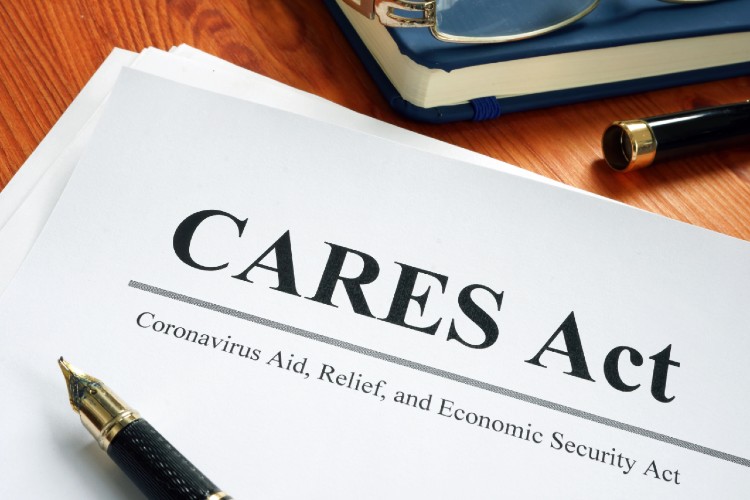 The Coronavirus Aid, Relief and Economic Security Act, commonly known as the CARES Act, was passed by Congress in order to aid Americans with emergency relief in response to the economic impact caused by COVID-19. The CARES Act covers everything from individual stimulus check and small business loans to industry-wide bailouts and hospital funding.
The Coronavirus Aid, Relief and Economic Security Act, commonly known as the CARES Act, was passed by Congress in order to aid Americans with emergency relief in response to the economic impact caused by COVID-19. The CARES Act covers everything from individual stimulus check and small business loans to industry-wide bailouts and hospital funding.
However, what is getting lost in the news cycle are the important changes that have been made to a variety of health care benefits that impact people in real ways. Consumers need to know how the law affects their health savings account (HSA), flexible spending account (FSA) and health reimbursement accounts (HRA) during this time, including some permanent changes. HSA participants, in particular, have important changes to consider.
1: Extended HSA deadline
As a response to the coronavirus and many businesses being shut down, the IRS has extended the federal income tax filing from April 15 to July 15, 2020. Additionally, taxpayers can defer federal income tax payments between April 15 through July 15 without normal penalties and interest, regardless of the amount owed.
So, what does this mean for HSAs? With this extended deadline, account holders have more time to contribute money into their accounts. This provides account holders a unique opportunity to contribute more money and further use it a savings tool for future qualified medical expenses.
Related: Student debt repayment and the CARES Act: What to know
The 2019 HSA contribution limit for an individual is $3,500 and for a family is $7,000. For those who didn't reach their annual limit by April, there is now an additional 90 days to make deposits.
2: Payment for COVID-19 testing and treatment
The IRS released guidance confirms employers may waive out-of-pocket costs for coronavirus testing and treatment for employees enrolled in a high-deductible health plan.
This waiver allows individuals to receive testing and treatment for COVID-19 without fear of jeopardizing their ability to contribute or receive contributions to their HSA for necessary care that may otherwise be more difficult to afford.
Why is this important? This new guidance allows employers to offer more affordable coverage to their employees and their families without risk of disqualifying their health plan. The more people who have financial access to testing and treatment, the faster we can contain the virus and get back to work.
3: Expansion of reimbursable expenses
Consumers can now purchase over-the-counter drugs and medicines with funds from their HSA or FSA account without a prescription from a physician. This could also be eligible for some HRA plans, however HRA plans vary from employer to employer, so participants should check with the governing plan documents or their human resources team first. Members can receive a reimbursement for those eligible purchases, regardless if the product is related to treatment of COVID-19.
Most merchants have already begun to adopt the changes for over-the-counter purchases. However, merchants may take up to a month to adopt these changes and in that case, consumers can file a reimbursement for expenses incurred after December 21, 2019. The provision is in place indefinitely.
4: Menstrual care products
An additional important change to note is that menstrual care products are now considered a qualified medical expense. The amendment says that money spent on menstrual products are now eligible as a qualified medical expense.
Accountholders can now pay or seek reimbursement for purchasing these products through an HSA or FSA. This could also be eligible for some HRA plans, however HRA plans vary from employer to employer, so participants should check with the governing plan documents or their human resources team first. The provision is effective for purchases and reimbursements of expenses incurred after December 21, 2019 and apply indefinitely. This provision is most likely to be adopted by merchants starting May 15, 2020.
5: Telemedicine exemption
The CARES Act states that "telehealth and other remote care services" below the deductible will be permitted in an HSA-compatible high deductible health plan (HDHP). This provision is effective immediately and will expire December 31, 2021.
Also: How the CARES Act helps create telehealth clarity
Beyond treating and screening potential COVID-19 patients, telehealth provides accountholders access to routine appointments with their healthcare provider, which may not otherwise be available during this time.
As the situation continues to rapidly change, lawmakers at both federal and state levels continue to pass legislation in response. With rules, qualifications and exemptions changing so rapidly, it's important for companies to stay in contact with their benefits administrator to remain informed on all the latest information available to maximize value.
Jeff Strong is VP of Sales at Sterling Administration.
© 2025 ALM Global, LLC, All Rights Reserved. Request academic re-use from www.copyright.com. All other uses, submit a request to [email protected]. For more information visit Asset & Logo Licensing.







